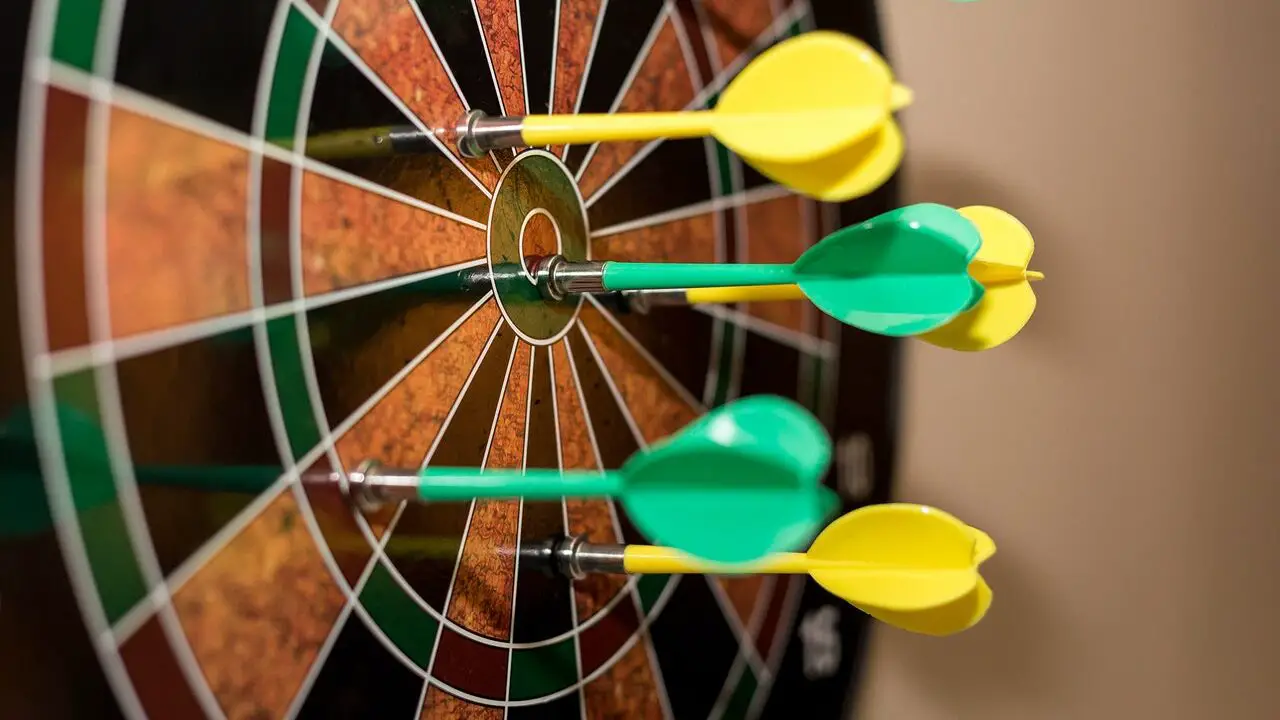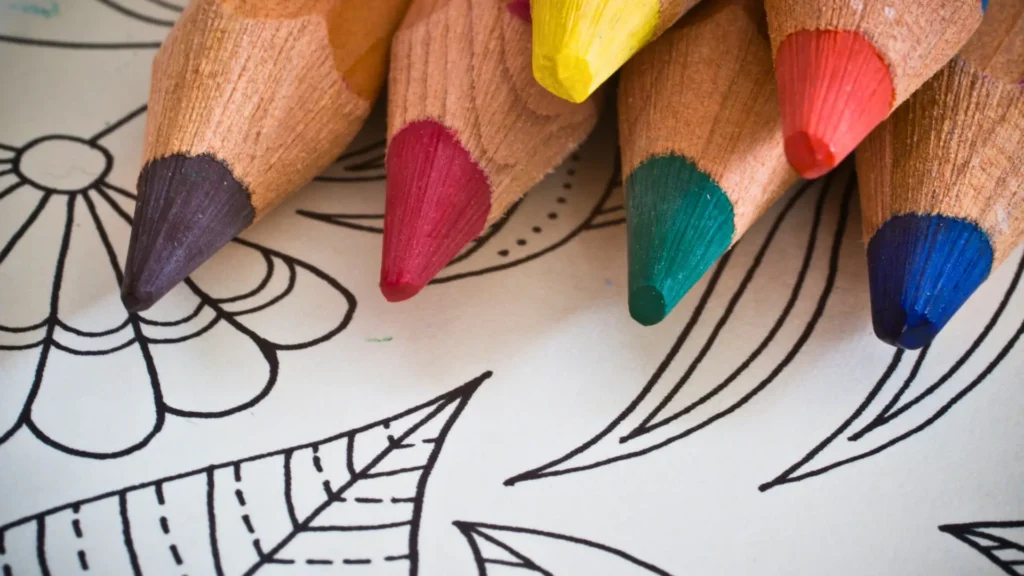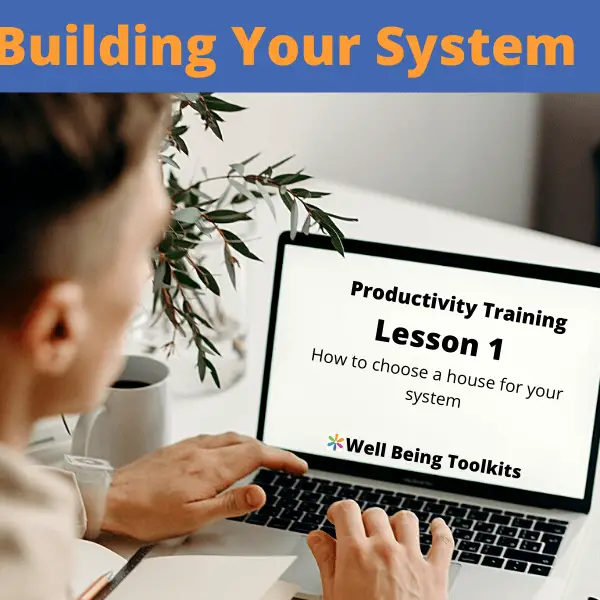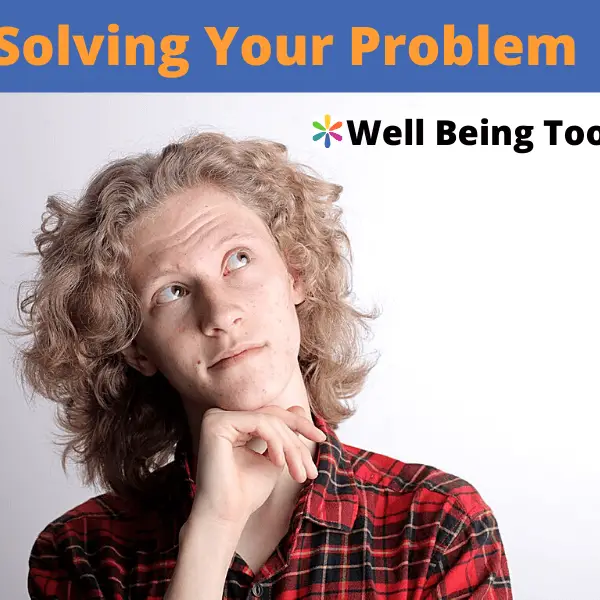
Emotions play a vital role in your life. It controls the type of action you do at any given moment. You go to movies because you feel happy about them, and you learn dark magic to make yourself disappear when going to the dentist 😀
That’s why it’s very important to learn how to improve your emotional wellbeing and have the right toolkits and tools for it. Like I said in the previous article, emotional wellbeing is the heart of the wellbeing body.
Today I’ll share with you 17 tools that you can start practicing and using today to improve your emotional wellbeing and maturity.
The main 3 emotional wellbeing toolkits are:
1- Emotional Intelligence (EQ)
2- Happiness
3- Venting
In each of these emotional wellbeing toolkits, you’ll find different tools that you can apply today to improve your life and make it more delightful.
Let’s find out
Content Covered Today:
Emotional Intelligence (EQ) Toolkit – 5 Tools
Improving your emotional intelligence and learning how to acquire that skill is vital to lead a happier and more successful life.
Researchers found out that 90% of top performers are people with high EQ, and on the other side of the spectrum, only 20% of bottom performers have high EQ. This means that 80% of bottom performers have low EQ
Thus, we see that success, achievements, and happiness are attached to persons with high EQ.
Also, when you look at it from a pure professional perspective, you’ll notice that hiring managers are focusing on having new employees with high EQ more than those with just high IQ.
This is because most business nowadays are based on interaction between one another and having a well skilled employee with emotional maturity, who knows how to deal with his and others’ emotions, is a catch.
And in my humble opinion, business are being created to succeed, and if they are focusing on promoting EQ among their staff, then it’s a no brainer for me to apply the same on my personal life with my wife, kids, family, and friends, because I too created a life for us and I’m intending to make it successful and joyful.
So, now you’re interested in learning about EQ to improve your emotional health, not let’s see briefly what tools exist for you to have in this toolkit
1- Self-awareness

It is the ability to recognize and understand your own emotions. It is also being aware of the effect of your actions, moods, and emotions on other people.
When you have the self-awareness tool, you will be capable of:
1- Observing and monitoring your own emotions
2- Identifying each emotion correctly and naming them.
3- Recognizing different emotional reactions on your body
4- Recognizing the relationships between the feeling and the behavior.
5- Recognizing your own strengths and limitations, being open to new information and experiences, and learn from your interactions with others.
Daniel Goleman, author of Emotional Intelligence: Why it can matter more than IQ, suggests that people who possess self-awareness have a good sense of humor, are confident in themselves and their abilities, understand their own strengths and weaknesses, and are aware of how other people perceive them.
2- Self-regulation

Self-Regulation tool is about being able to manage your emotions and the consequent possible actions they may have on yourself and others.
Being aware of your own emotions and the impact you have on others alone isn’t enough. Emotional intelligence requires you to also be able to regulate and manage your emotions.
This doesn’t mean suppressing your emotions or locking them down or hiding them. It means expressing them appropriately in the right time and place with the right wording and approach.
When you have the Self-regulation tool you’ll be capable of doing the following as per Daniel Goleman, author of Emotional Intelligence: Why it can matter more than IQ:
1- Having high levels of conscientiousness.
2- Being thoughtful about how you influence others
3- Taking responsibility for your own actions.
4- Being flexible and adapt well to change
3- Motivation

Intrinsic motivation is another important emotional intelligence skill. It’s much stronger than being motivated by external motivations like fame, money, recognition, and acclaim.
People with high emotional intelligence and have this motivation tool have a passion to fulfill their own inner needs and goals. They seek internal rewards, experience flow from being totally in tune with an activity and pursue peak experiences.
When you have this motivation tool, you’ll be capable of:
1- Being competent and action-oriented.
2- Setting goals, have a high need for achievement, and are always looking for ways to do better.
3- Being very committed and are good at taking initiatives.
4- Empathy

Empathy is the ability to understand how others are feeling, and it is absolutely critical to emotional intelligence. Not only it involves being able to recognize the emotional states of others, but also your responses to people based on this information.
When you sense that someone is feeling sad or hopeless, how do you respond? You might treat them with extra care and concern, or you might make an effort to lift their spirits.
When you have the empathy tool, you’ll be capable of:
1- Being able to connect with other people on an emotional level
2- Supporting other people with their concerns.
5- Social skills

It is the ability of being able to interact well with others. This is another important aspect of emotional intelligence.
Having strong social skills allows people to build meaningful relationships with other people and develop a stronger understanding of themselves and others.
True emotional understanding involves more than just understanding your own emotions and those of others. You also need to be able to put this information to work in your daily interactions and communications.
When you have the social skills tool, you’ll be capable of:
1- Building relationships and connections with others
2- Developing a strong rapport with others.
3- Acquiring important social skills of active listening, verbal communication skills, nonverbal communication skills, leadership, and persuasiveness.
Happiness Toolkit – 11 Tools
This is where it gets interesting as the happiness toolkit have tools that belongs to other wellbeing dimensions like physical wellbeing, mental wellbeing, financial wellbeing, social wellbeing, and spiritual wellbeing.
This is yet another proof that your wellbeing is and should be integrated. This is why I always advise to care for all the 6 wellbeing dimensions because they affect one another.
In another words, the relation between all wellbeing dimensions is inextricable. Let’s find out
6- Exercise

Physical activity helps release endorphins which can improve your mood stronger than actual drugs. This is physical wellbeing supporting your emotional wellbeing
When you are in a bad emotional state or feeling down, you stop doing not just the things that caused you to feel down, but also other good activities too.
If you’re being hurt by someone, you don’t just stop seeing him/her but also you may stop going to movies, or gym or hanging with your other friends.
The easiest and most strange way I see, is to get up and get active regardless of your “feeling” at that moment.
7- Food

How food can affect your emotions you might be asking. I will tell you that food plays with the mood. This is another visitor from the physical wellbeing city to support your emotional wellbeing.
Changes in blood sugar levels are linked to changes in mood and energy. Eating regularly and healthy maintains your blood sugar levels. Not doing that can make feel tired, irritable, anxious and cause poor concentration.
Quick tips you can start implementing include:
- Eating breakfast
- Eating every 3-4 hours
- Avoiding junk foods as much as you can
- Eating plenty of fruit and vegetables
- Drinking 6-8 glasses of water to enjoy the 7 benefits of drinking water to your wellbeing
8- Productivity

When it comes to improving your emotional status and enhancing your mood, productivity tool comes in handy with its skills of being organized, ability to prioritize tasks, meeting your deadlines and getting things done.
It’s a no brainer that you’re stressed out and angry when you’re being late on preparing your presentation or when not finishing all your work in time.
Also, having more than you can finish in a day is a constant that you must know by now or must know it now as you read this. This means that being able to prioritize your tasks and projects is a needed skill that not only will get you on top of your game but also will maintain your emotional status positive when achieving the important things
I said it before and I’m saying it again, and I’ll keep saying it. Productivity is a basic skill that all of us should be learning and applying in our daily life.
To get going for now:
- Get an application that you can use to manage your life. I suggest Microsoft to do for now
- Create lists for Next actions, Projects, and Goals
- Create and fill in all the tasks you need to be doing in the next action list, all the projects under the project list, and all the goals under the goals list.
Use that for now and we can work on it later if you’d like. You can check my Productivity Training and decide.
-
 Productivity Executive$1,180.00
Productivity Executive$1,180.00 -


 Productivity Premium$420.00
Productivity Premium$420.00 -


 Productivity Basic$80.00
Productivity Basic$80.00
9- Resilience


Experts say that when you are emotionally well, you have fewer negative emotions and are able to bounce back from difficulties faster.
That’s an interesting superpower to have I would say and it’s coming from planet mental wellbeing to help your emotional wellbeing.
This tool is called resilience. Another sign of emotional wellness is being able to hold onto positive emotions longer and appreciate the good times.
Quick tips you can implement to improve your emotional health are:
- Remember your good deeds and give yourself credit for doing them for others each day.
- Forgive yourself. You, I, and everyone else makes mistakes. Learn from what went wrong and move on.
- Surround yourself with positive, and healthy friends.
10- Sleep


Another friend from physical wellbeing dimension.
I always say that your day starts at its end not at its beginning. I mean that to improve the quality of your day, you need to work on improving what you do at the end of it which is sleeping more than focusing on the waking up part.
This is because going to bed at a reasonable time and in an appropriate environment improves the quality of your sleep which leads to a better morning mentally, emotionally, and physically.
Most of us often sacrifice sleep to get everything done in our day and that’s where it all goes wrong. But when you have enough sleep, you think more clearly, have quicker reflexes and focus better.
Take steps to make sure you regularly get a good night’s sleep.
- Go to bed the same time each night and get up the same time each morning.
- Sleep in a dark, quiet, comfortable environment.
- Limit the use of electronics before bed.
- Relax before bedtime. A warm bath or reading might help.
- Avoid alcohol and stimulants such as caffeine late in the day.
- Avoid nicotine.
- Consult a health care professional if you have ongoing sleep problems.
11- Connection


Social interactions with your family, friends, peers or neighbors can protect your health and improves the quality of your life.
This is the social wellbeing friend connecting with and supporting the emotional wellbeing
What’s more important here is the quality of those relations, not just the quantity. Having few positive and supportive connections is way better than having many connections with toxic people.
Quick tips you can implement to improve your emotional maturity:
- Build strong relationships with your kids.
- Get involved in activities with family and friends.
- Take a class to learn something new.
- Volunteer for things you care about in your community, like a community garden, school, library, or place of worship.
- Travel to different places and meet new people.
12- Purpose and Goals


This is spiritual wellbeing interfering to boost your emotional wellbeing.
One of the hidden reasons of having low emotional wellbeing is lacking purpose and goals. I mean, why would you need to get up of bed every day? What’s the purpose of getting up?
If you don’t have a strong reason to get out of your bed to pursue it and make it happen, then you’re most likely to feel lost and there for sad or depressed or whatever.
Also I have to say that just having a goal isn’t enough, cause preparing the presentation for your manager is a goal mostly created by him and I have many times in my productivity coaching sessions that this is one of the areas that people tend to procrastinate about, and the solutions I always give is to make it about them, and to personalize the reason of preparing that presentation.
So, to use Purpose and Goals as a tool to improve your emotional wellbeing:
- Figure out what’s important to you in life and focus on that. This could be your work, your family, volunteering, care-giving, or something else.
- Spend your time doing what feels meaningful to you.
- Start creating your tasks lists and aim to cross items from that list. Each time to cross an item and hear that ding sound, you’ll feel a sense of accomplishment and motivates you to do more.
13- Gratitude


It is your ability to find positive things that keep you around. This is another interaction between spiritual wellbeing and emotional.
The difference I have between gratitude and resilience about this point, is that resilience is knowing and remembering the positive points you have or do yourself while gratitude is knowing the positive things in everything other than you.
So being resilient is knowing that you’re good at your job, and gratitude is knowing that your workplace has good colleges or that your job is stable
Being resilient is knowing that you are a good parent and a spouse, and gratitude is knowing that you have an amazing partner and beautiful kids.
Some people benefit from keeping a gratitude list. This is simply making a list of things that you’re thankful for. It can be helpful to look back at this list during difficult times in your life. It can help you to see that there are positive things in your life that you should be thankful for.
Focusing on gratitude can be beneficial for improving your emotional health, and that’s why I advise you to start having your gratitude list for the major areas you have in your life:
- Family
- Where you live
- Work
- Friends
- Miscellaneous: pets, hobbies, environment, events, etc.
14- Hobbies


Some people like to read to learn about the world or escape into other worlds. Some people like to express their feelings through art, some through music, others through sport, some like talking things through with others.
Since hobbies are stress management mechanisms, I consider this another connection between mental wellbeing and emotional wellbeing.
Whatever your style, make sure you keep expressing yourself that way. It will help you to stay connected, to discover more about you, your identity, and the person that you want to become.
Examples of hobbies or activities that can boost your emotional wellbeing are:
- Listening to or playing music
- Going or making movies
- Drawing
- Raising pets
- Journaling about your life
- Joining charity events
- Playing sport
The list goes on and on, and what’s important is for you to find your thing and keep it alive.
15- Mindfulness


This is an ancient practice about being completely aware of what’s happening in the present, including everything that’s going on inside and all that’s happening around you.
It means not living your life on “autopilot.” Becoming a more mindful person requires commitment and practice. Here are some tips to help you get started.
This is another connection between mental and emotional health
Quick tips for that:
- Practice mindful eating. Be aware of taste, textures, and flavors in each bite, and listen to your body when you are hungry and full.
- Find mindfulness resources in your local community, including yoga and meditation classes, mindfulness-based stress reduction programs, and books.
16- Fun and Easy Activities


Another way to maximize your happiness is to indulge yourself in activities that are fun and entertaining while being easy and simple to perform so that it doesn’t require a lot of horse power to finish them. This tool helps boosting happiness through the following mechanisms:
- The fun part of the activities being coloring or dancing or singing
- The simplicity of finishing the task which turns on your reward center in the brain because you “completed” something
Examples of these fun activities includes but not limited to drawing, coloring, singing, dancing, shopping (healthy), or even finishing a quick task on your To-Do list and hearing that “bing” sound on your app when you mark it as completed, or the “scrshhh” sound of the pen scratching it of your paper To Do list
Venting Toolkit – 2 Tools
This toolkit has the tools that are aimed of supporting you deal with difficult situations.
Tools in the emotional intelligence and happiness toolkits can help you when you are in a balanced emotional state or a positive one, or a mild negative one.
On the other side, tools from the venting toolkit help you the same way as with the other emotional wellbeing toolkits mentioned above and also when you are in moderate to severe serious emotional state, it’s advised to use any of the above tools PLUS one or all of the tools in the venting toolkit.
17- Breathing


Deep breathing or belly breathing or diaphragmatic breathing puts pressure on the Vagus nerve which connects directly to the heart and many other organs.
When we massage that nerve with deep breathing, we actively slow our heart and switch into a more relaxed and open state of mind
I consider this to be one of the emotional first aid techniques that you can use in moderate or severe situations. It can help alone or combined with the other tool.
Still you can use the breathing tool any time you’d like not necessarily in negative situations.
To have this breathing tool you do the following:
- Breathe in through your nose to a count of 4
- hold for 1 second
- then exhale through the mouth to a count of 5.
- Repeat often.
18- Asking for help


This is the other emotional first aid tool that you need to have in place for serious situations. Like the breathing tool, asking for help can always be used, and at any time in the form of follow ups with your therapist or coach.
If you’re struggling in life with a difficult emotional situation, it can be helpful to talk with someone, a therapist or a coach. This is so important to be aware of, and not doing so, could let you fall into one of the 9 common mistakes in Emotional WellBeing.
Even if you don’t know exactly where your struggle is coming from, that person can help you get to the root problem and learn skills that you can implement in your daily life to improve your emotional health and wellbeing.
To have that tool set, you need to:
- Find resources around you that you can use when you need. This includes finding virtual or physical therapists and coaches.
- Appoint one of your close friends to be your emotional first aider to go to if things go rough. He or she could be the one helping you or guiding you to the therapist or coach you identified earlier.
Next Actions You Can Do
The informing part is done, let’s get to the transforming part
If you’re interested in getting started to improve your emotional wellbeing, then follow me:
1- Identify Your Level
Before you can begin your journey, you need to know where you are right now, and for that you can use the general assessment question mentioned before to identify your current level:
On a scale from 0-10, 0 being low, and 10 being highest, how would you rank your emotional wellbeing today?
2- Create a Goal
Perfect!! Your current level is identified, and now you have to set a destination for your journey.
Your current level could be 7 and the level you want to aim for is 8. If this is the case, then you can create the following goal
Example:
Improving my overall emotional wellbeing to 8 by 2021.
So, head over to your goals list in your system and add a goal for your emotional wellbeing
3- Create Projects
For each goal to happen you need one or more projects. So now it’s time for you to plan how will you achieve your goal above, and what are the projects needed for this to happen
I suggest creating projects form the different toolkits we talked about above and examples may include:
Work on my self-awareness tool for the upcoming 3 months (EQ toolkit)
Maintain a gratitude behavior for 5 months (happiness toolkit)
Create a list of therapists and coaches (venting toolkit)
4- Next Actions
Amazing job so far! Now you have your goal, and projects. Next is to drill further down to the simple actions that you can start acting on now.
Examples:
@Laptop: Look for the WellBeing Coaching offers in toolsofwellbeing.com
@Laptop: Look for the Productivity Training offers in toolsofwellbeing.com
@Home: Read the Emotional Intelligence book by Daniel Goleman
@Errands: Buy a Gratitude Notepad
@Errands: Buy a guitar or a drawing kit
@Phone: Call my therapist to book an appointment
Conclusion
- Emotions play a vital role in your life. It controls the type of action you do at any given moment
- The main 3 emotional wellbeing toolkits are: Emotional Intelligence (EQ), Happiness, and Venting.
- Improving your emotional intelligence and learning how to acquire that skill is vital to lead a happier and more successful life. If businesses are doing it to success and last longer, then this means it’s important for our personal life as well to last longer successfully
- Emotional Intelligence (EQ) toolkit has 5 tools: 1- Self-Awareness, 2- Self-Regulation, 3- Motivation, 4- Empathy, and 5- Social Skills
- The Happiness toolkit is another proof that all wellbeing dimensions are meant to be integrated and cared for all together without focusing on one dimension and letting go of the others.
- Happiness toolkit has 10 tools: Exercise, Food, Productivity, Resilience, Sleep, Connection, Purpose and Goals, Gratitude, Hobbies, and Mindfulness
- Venting toolkit is your first aid box that you can use in emergencies and it includes 2 tools: Breathing, and Asking for Help
Resources
The WellBeing Coaching
We can interact with each other 1 on 1 using the WellBeing Coaching, and come up with a specific plan just for you and tack it down till its completion
References
- What is Emotional WellBeing: 5 Things You Should Know
- 6 Concrete Ways to Improve Your Emotional Health
- Emotional Wellness Toolkit
- Mental Health: Keeping Your Emotional Health
- 11 Mental Health Activities That Encourage Emotional Wellness
- Help yourself – 10 ways to boost your emotional wellbeing and mental health
- The Importance of Emotional Intelligence
- Improving Emotional Intelligence (EQ)
- emotional intelligence (EI)
- 5 Key Emotional Intelligence Skills


